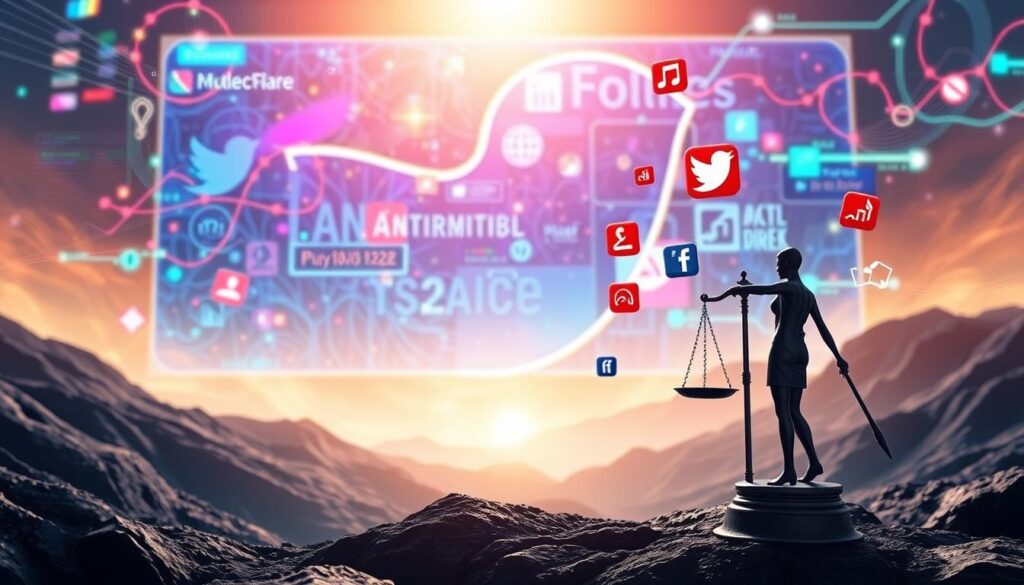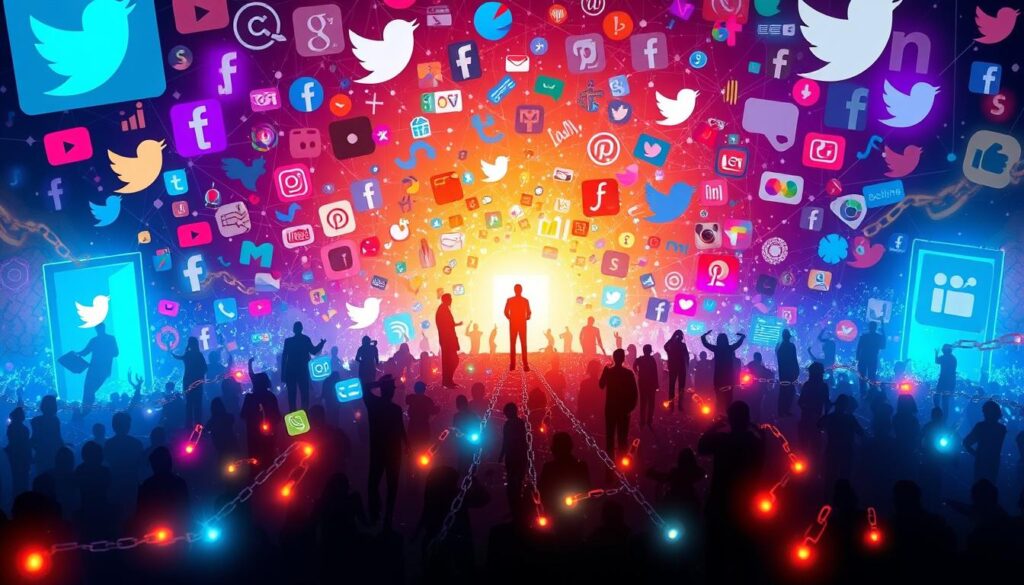Meta’s recent decision to lift restrictions on Donald Trump’s accounts marks a major shift in social media as the 2024 U.S. election approaches. By restoring his access to Facebook and Instagram just before the Republican National Convention, Meta has sparked fresh debates. These discussions center on digital rights and free speech. They also raise questions about the responsibilities of social platforms in politics.
This move not only reopens Trump’s digital reach but also tests how platforms should navigate the complex landscape of political discourse. Read on to explore the full implications of this decision and what it means for the future of online political engagement.
The Timeline of Trump’s Ban and Subsequent Meta Policy Shifts
The timeline of Trump’s ban started with the Capitol riot on January 6, 2021. Meta, then Facebook, suspended Donald Trump’s accounts on Facebook and Instagram for 24 hours.
This was because of Meta’s rules against dangerous people and groups. This move was a big step in how social media handles big issues.
Then, on January 7, 2021, Meta made Trump’s suspension permanent. They wanted to keep things calm during a tough time. This move was part of Meta’s effort to stop violence.
The Oversight Board later agreed with this decision. But, they said the ban should be for a set time, not forever. This showed a need to rethink how long bans should last.
Meta later decided on a two-year ban. This was a big change in their rules. It was a chance to think about letting famous people back on without problems.
Meta said they could ban Trump again if he broke the rules. Depending on the offense, this ban could last a month or two years.
As the 2024 elections get closer, Meta is changing its rules again. They want to keep their platforms safe but still let people talk freely. They’re making new rules to stop Trump from causing trouble again.
Meta is also considering the 2022 US midterm elections. They’re working with experts to prevent bad content, including limiting what famous people like Trump can post.
These changes show Meta is trying to handle big issues carefully. They’re balancing free speech with keeping their platforms safe. This is a big challenge for social media.
User Account Bans and the Controversy Over Content Moderation
Trump had many followers on Meta platforms. His ban sparked a big debate about social media rules. Some say bans stop violence and lies, while others see them as a threat to free speech.
Meta’s plan to let Trump back on has faced pushback. Groups like the NAACP are worried about how this affects public talks. They wonder if letting big names back without strict rules is safe.
Meta has developed new rules to better handle big names. These rules aim to punish repeat offenders but also give them a second chance, showing that Meta is trying to find a better way to manage content.
The Role of Digital Rights and Ethics in Social Media Censorship
Digital rights and ethics play a big role in the world of social media. Meta is changing its rules on what content it allows. It wants to stop harmful speech but also protect free speech.
Meta’s new rules show they care about fairness in social media. But, it’s hard to know what is okay and what’s not. Words like “glorification” can be tricky.
Meta has to check a lot of content every year to ensure it is fair and open. This is where digital ethics come in. They help ensure that everyone respects each other’s rights.
As we discuss social media more, we need to consider ethics. We must consider how these rules affect our freedom and how we talk to each other.

Examining the Impact on Online Free Speech and Platform Governance
Meta’s decision to lift restrictions on political figures’ accounts has sparked a big debate. This debate is about online free speech and how platforms govern themselves. It asks how platforms can stop misinformation without hurting free speech.
A study with 2,564 US people showed interesting views on content moderation. Most people think we should stop misinformation, but they don’t want to ban accounts. They want misinformation removed but not to ban accounts unless it’s very harmful.
This shows a big concern about digital rights. It’s about finding a balance between keeping the internet safe and keeping free speech. Social media giants like Meta, Twitter, and Google are changing their ways. They are using warnings and removing content to keep things safe.

Meta’s Changing Strategies in Platform Governance and Public Safety
Meta is evolving its content moderation policies, balancing safety with free speech. This includes new rules for high-profile figures and a commitment to transparency in decision-making.
- Meta introduced a two-year ban on public figures who commit serious violations as a compromise approach to balancing safety and free speech.
- Meta assesses the severity of issues when making decisions on content moderation or account suspensions. It also considers the identity and influence of those involved, such as public figures.
- Meta aims to create rules that maintain fairness while protecting public safety. Decisions must take into account both the impact of the content and individuals’ rights to express their views.
- Meta has committed to being more open and transparent about how they make their content moderation decisions. This includes those that involve high-profile figures like Trump.
These strategies show Meta’s attempt to balance managing harmful content and maintaining free speech on its platform.
How Meta Decision Affects Political Bias Allegations
Meta wants to treat everyone the same, but it makes some people wonder if it’s fair. This debate is about how to keep the internet open for all views.
Meta is changing how Instagram and Threads work to avoid too much politics. This change is a big step towards less political content, and it’s a result of what happened in the 2016 and 2020 U.S. elections.
How Meta handles this change could be very important. It could help or hurt how we see political bias online.
Meta is getting ready for big events by setting up a special team. This team will help fast if something bad happens online. It shows Meta cares about keeping us safe.
However, this move also raises questions about political bias. It’s a tough balance to strike between keeping us safe and allowing everyone to have their say.
When we talk about political bias, rules for online talk are very important. Meta has rules to keep things fair, but some people think these rules have a political side. Decisions on what to allow or not can affect trust in these rules.
Understanding Meta’s choices is key to understanding the future of free speech online. Meta’s decisions have a huge impact, affecting how we see politics worldwide.
Public Discourse Regulations and the Role of Major Social Platforms
Major social platforms play a big role in public talk rules. With Donald Trump’s account back, Meta is getting a lot of attention. These platforms greatly affect political talks, especially with Trump’s return.
Trump’s return after two years raises big questions. Does it mean Meta’s rules are changing? Or is it to keep things balanced? Trump has a huge following, with almost 54 million on Facebook and Instagram.
Meta wants to treat Trump fairly, like President Biden. However, this shows a big responsibility for these platforms. They must keep talks honest and open for everyone.
Platforms like Meta are key in fighting fake news. But their choices affect many people. They shape how we see big political events and ideas.
Balancing Misinformation Control With Free Political Speech
Handling misinformation in politics is very tricky. Platforms must fight fake news while keeping free speech alive. Social media giants are trying hard, but it’s a big challenge.
In 2016, 126 million Facebook users saw fake news from Russia. This shows how big the problem is online.
Places like the UK want to make rules to stop fake news, as it can cause big problems. Brazil also had a big fight over stopping fake news.
Most Americans get news online, and social media is key. Platforms play a big role in keeping news real and allowing people to talk freely.

The Importance of Transparency in Misinformation Crackdown Efforts
It’s key for users to understand why people make big decisions. These decisions can change how we get information online.
The idea of an “infodemic” during the COVID-19 pandemic is striking. It shows how much false information can spread, which has affected people’s minds and perceptions.
Platforms like Meta need to be open about how they handle content. This is crucial for keeping trust and helping people’s mental health.
How social media spreads information is also a big issue. False information gets around faster than true stuff. This is a problem for digital rights, showing we need clear rules to help us find real information.
Companies like Google and Meta didn’t discuss certain court decisions. But public officials and groups said these decisions are important for fair online spaces. It’s important for these groups to work together openly. This way, we can fight false information without stopping real talks.
Future of Political Communication in the Era of Social Media
Looking at how politics and social media interact, we see big changes. Meta’s decision to let Trump back on shows how free speech and digital rights link together. This could change how campaigns and public talks happen before the 2024 U.S. election.
Facebook is key for over 200 million businesses and reaches 80% of U.S. social media users. This shows its big role in politics.
Over 600 cases from the January 6 insurrection show social media’s impact. The House Select Committee wants records from social media. This shows how important social media is in politics.
We must protect digital rights and monitor how social media operates. Social media giants need to fix their algorithms to reduce harm. They must find a balance between stopping extremism and allowing political talk.
Social media’s hold on public opinion is huge. Studies show Facebook’s role in limiting views and creating echo chambers. But, not using Facebook can help reduce division.
Since the early days of the web in politics, we’ve seen a lot. Our journey shows how tech and civic engagement work together. Now, we must use social media to help democracy grow. It’s about more than just social media; it’s about our democracy’s future.
Conclusion: Shaping the Future of Free Speech and Online Responsibility
Meta’s decision to lift Trump’s account restrictions has reignited discussions on the role of social media in democratic societies. The company’s approach to balancing content moderation with freedom of speech will likely influence how other platforms navigate these challenges in the future. As social media becomes increasingly central to political discourse, the focus on transparency and digital rights will grow. Responsible content management will also play a key role in shaping the path forward.
Explore more on Social Meep for further insights on the impact of social media policies on public conversation and political narratives. Dive into discussions on how platforms like Meta manage the delicate balance between free expression and accountability.
